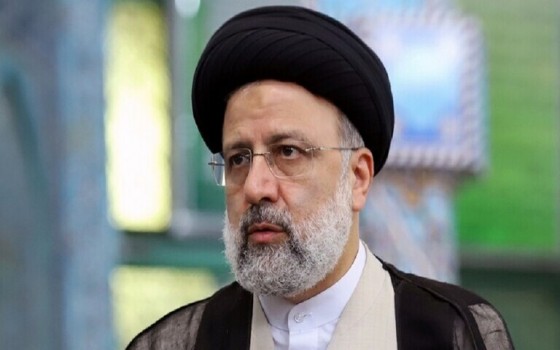
On the eve of the Iranian president's visit to New York to participate in the United Nations meetings... a complaint against him for his participation in the abuse of thousands of political prisoners

- Europe and Arabs
- Thursday , 18 August 2022 13:24 PM GMT
Brussels: Europe and Arabs
The People's Mojahedin Organization, the Iranian opposition, issued a statement, which we received a copy of today, Thursday, in which it said: On the eve of Iranian President Ebrahim Raisi's trip to New York to participate in the United Nations General Assembly, a group of former political prisoners who witnessed the 1988 massacre and the families of the Mujahedin-e-Khalq martyrs filed a criminal complaint against the serial killer of the 1988 massacre, Ebrahim Raisi, in the Southern New York court, for crimes against humanity and genocide. Some of the plaintiffs live in America and some in European countries. Professor Stephen Schnebaum, a prominent American human rights lawyer, emphasized to the MEK, to inform all plaintiffs in various countries, especially the United States, Europe and Canada, that the process of formal registration of complaints was continuing. The ATS (Foreign Tort Act) allows non-US citizens to sue in US federal courts for violations of international law, regardless of where the crime occurred. The gross violation of human rights by Raisi against these plaintiffs and thousands of others who were political prisoners in 1988 are considered criminal and extra-legal acts at the international level. Since 1980, this law has been applied in cases such as torture, crimes against humanity, and arbitrary detention. In addition, the Victims of Torture Protection Act (TVPA) gives US citizens and residents the right to go to court to bring cases of torture and killings committed in other countries. The complainants, supporters of the People's Mojahedin Organization of Iran, asserted in their complaints that in 1988, when the massacre of thirty thousand political prisoners was perpetrated throughout Iran, Raisi was a member of the death committee in Tehran and was directly responsible for the execution of thousands of political prisoners. Experts, lawyers and human rights organizations describe the massacre as genocide and a crime against humanity. Given that since 1988, none of the main perpetrators of the massacre have been charged, prosecutors want Raisi to face justice during his trip to New York for the 77th session of the United Nations General Assembly. According to UN protocols that consider heads of state to be subject to judicial immunity, it should be noted that Ibrahim Raisi is not a "head of state" and does not enjoy immunity. According to the velayat-e faqih constitution, the "head of state" is Khamenei. Article 113 of the regime's constitution states that the president of the republic is the highest official in the country "after the leader".
National Council of Resistance of Iran - Judicial Committee
August 18 2022












No Comments Found